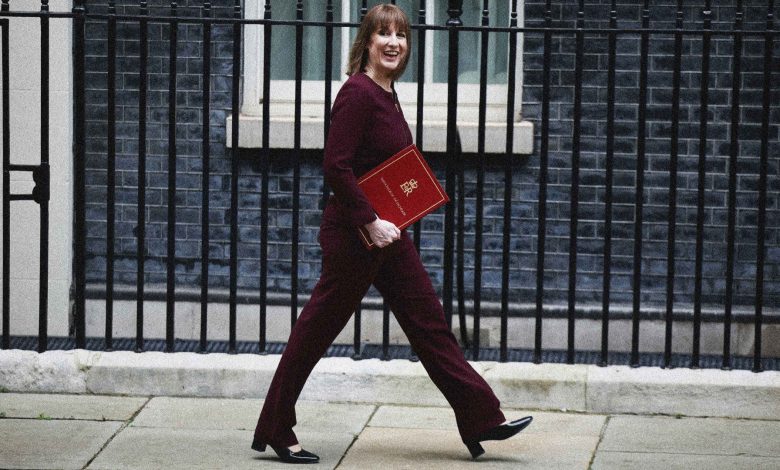A budget for the bond market

Last Thursday night, due to a leak either from the Treasury or the Office for Budget Responsibility, it became clear that Rachel Reeves had abandoned plans to raise income tax to fill a gap in the public finances created by new statistics on productivity.
The next day bond yields spiked, meaning that the cost of government borrowing (already punishingly high) went up even further, the Westminster press corps went into a frenzy, and at one point it seemed like lobby correspondents were willing the markets to finish off the Labour government.
Tory commentators accused Reeves of capitulating to her backbenchers. Backbenchers duly supplied anonymous quotes to the effect that Reeves’s credibility was shot.
Following a botched briefing by cabinet sources against a potential leadership challenge by Wes Streeting – in which someone close to Downing Street had briefed that such a challenge would scare the bond markets – it prompted yet another round of speculation about Keir Starmer’s future.
So what’s going on? And how can the government escape this doom loop of negative comment, policy paralysis and internal dissent?
First off, there was no actual U-turn on income tax. Because the OBR’s predictions are subject, effectively, to a Byzantine process of negotiation with the Treasury, Reeves was always going to need two plans for the budget: a worst-case and a best-case solution.
She made a high-profile speech “rolling the pitch” for the worst-case outcome. This proposed raising tax by 2p, while cutting national insurance by the same amount, forcing landlords and pensioners to fork out around £6bn a year.
But it was always possible that a manifesto-busting tax rise would not be needed. With OBR predictions turning out better than expected, it now seems likely that Reeves will raise the money through a “smorgasbord” of smaller tax rises and that she will now stick to her manifesto pledge.
All the leak did, therefore, was deprive Reeves of a “white rabbit” moment on budget day next week. But its political consequences are not over.
Beyond the political centre, there are forces on both sides that want to throw fiscal rules on the scrapheap. Nigel Farage may have scrapped his ludicrous tax-cutting pledges from the 2024 election, but he is still selling the snake oil of unmeetable spending cuts.
Zack Polanski, the Greens’ voluble new leader, rushed out a press release demanding Reeves slap a wealth tax on multimillionaires. But he, too, went to the polls last year promising to raise taxes by £190bn a year and to add – according to the IFS – at least £80bn to the UK’s debts.
Worse, Polanski turns out to be “Modern Monetary Theory-curious”. In a recent conversation with the heterodox economist Richard Murphy, the Green leader discussed the idea, which proposes that governments can simply print money and lend it to themselves, while telling the bond markets to go to hell. The problem with this idea is that it is “bollocks.”
Even Andy Burnham, the centre left Labour mayor of Greater Manchester, has told the government: “We’ve got to get beyond this thing of being in hock to the bond market.”
The problem is, we’re in hock to the bond market in the same way that we’re subject to the laws of gravity. And while the UK’s current debt dynamics are no worse than the average for other developed countries, we’re still paying a premium for Liz Truss’s catastrophic mini-budget, so that one pound in every 10 raised in taxes goes to paying interest on our £2.9tn debt pile.
What’s spooked lenders is not simply that Truss tried to defy fiscal gravity, but that she did so as leader of a hitherto fiscally responsible party, and then Rishi Sunak compounded the problem of trustworthiness by accumulating a £22bn in-year overspend before last year’s election.
So Labour is trapped in a fourfold institutional dysfunction. First, the cycle of OBR predictions, Treasury response and a tussle down to the wire between the two institutions before each fiscal event has become ridiculous. It means that government policy is ultimately constrained not by the bond market itself, but by the guesswork of a modelling department in a quango.
Second, the Bank of England is steadfastly ploughing on with “quantitative tightening” – selling the bonds it bought during the 2008 financial crisis at a cumulative loss predicted at £240bn, which the Treasury has to fund. Though everybody in politics would like the Bank to stop doing this, its “independence” means they cannot.
Third, by recognising the genuine problem that any relaxation of fiscal policy, let alone a sudden change of prime minister or chancellor, would spike debt interest payments even higher, the Starmer administration has limited its room for solving problems one and two.
Fourth, and finally, the government has issued a strategic defence review that implies a major uplift in defence spending, but without any specifics about where it will find the money.
There is a solution, but I doubt Reeves is prepared to grasp it this side of next year’s local elections. It is, first, to either abolish or severely limit the powers of the OBR, so that the government allows the markets to “mark its homework,” not an unelected quango.
Second, though the Bank of England is independent, it only did quantitative easing with government permission, and should be told to stop tightening by the same means.
Third, the government should call the bluff of every opposition fantasist who thinks they can print money to solve the problem, or “tax wealth.” I am in favour wealth taxes, but at a time when the UK is trying to attract inward investment, you have to listen to the evidence as to how much they will bring in, versus how much “behavioural change” (aka fleeing to Dubai) they will trigger among the better off.
Instead of the usual Treasury trick of “costing” opposition fiscal policies, in order to expose them as dodgy, I would give Farage, Polanski and if necessary the ultimate fiscal fruitloop Zarah Sultana, full access to the Treasury’s model so that they can actually plug their proposals into the machine that would enact them, should they achieve power. The predictable outcome would be “computer says no.”
There is, for Rachel Reeves, light at the end of the tunnel. There has been no sustained bond market negativity since the leak. And if she can show lenders a credible path to lower debt, she can bring the bond yield down closer to that of her peers.
But the defence problem remains: when Gordon Brown slashed income tax to 20p in the pound, the Russians weren’t dredging up our internet cables and cyber-attacking our major institutions. The peace dividend of the 1990s-2000s is gone and to ensure our safety, I think we’re just going to have to pay more tax.






